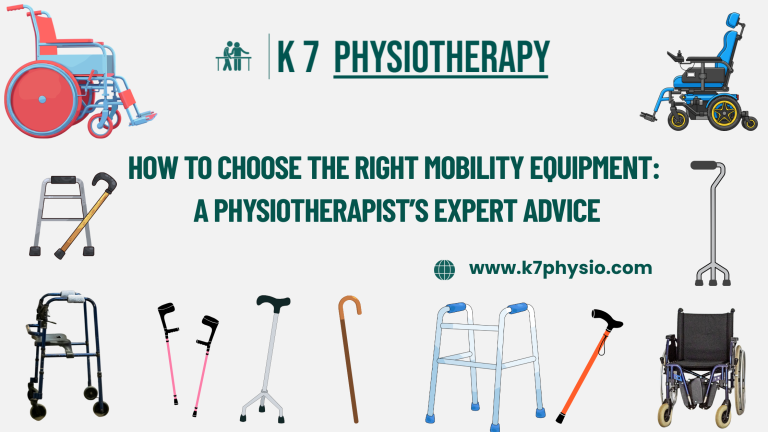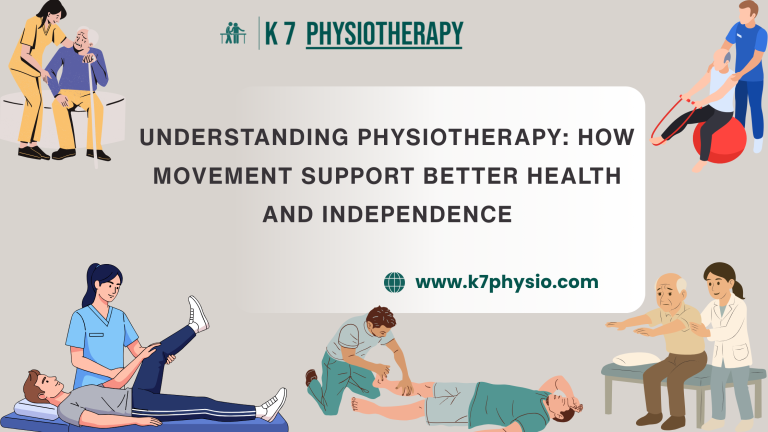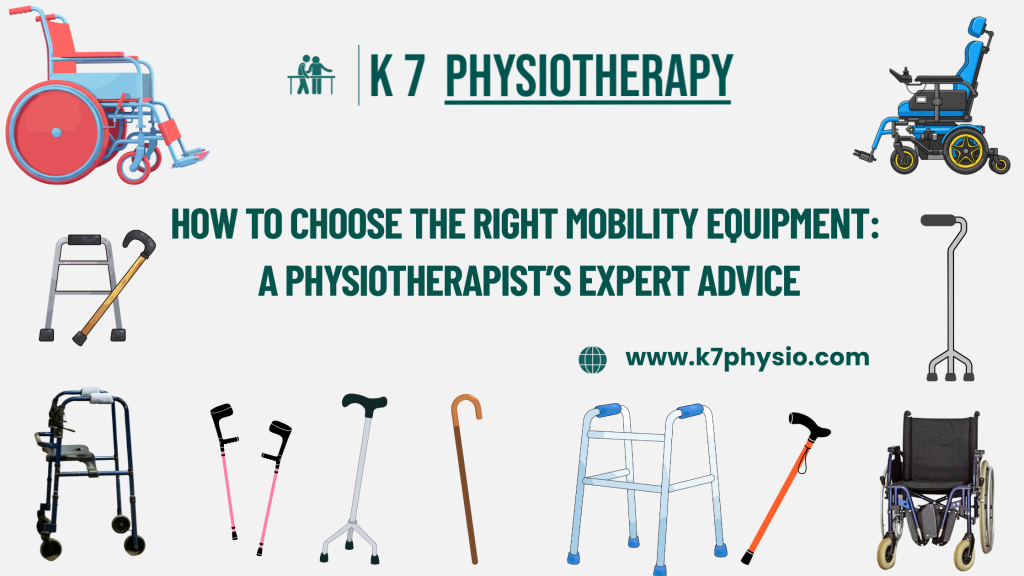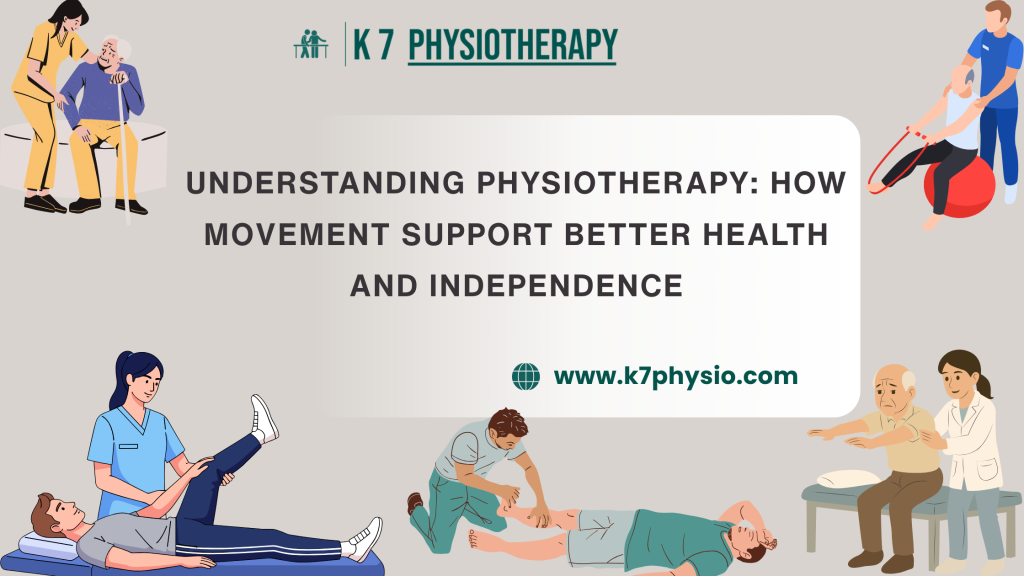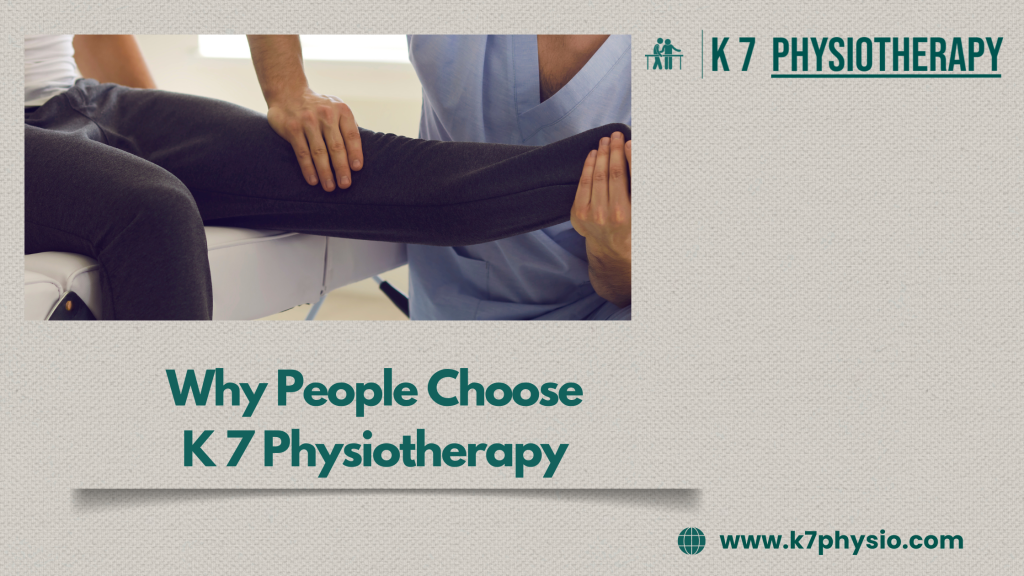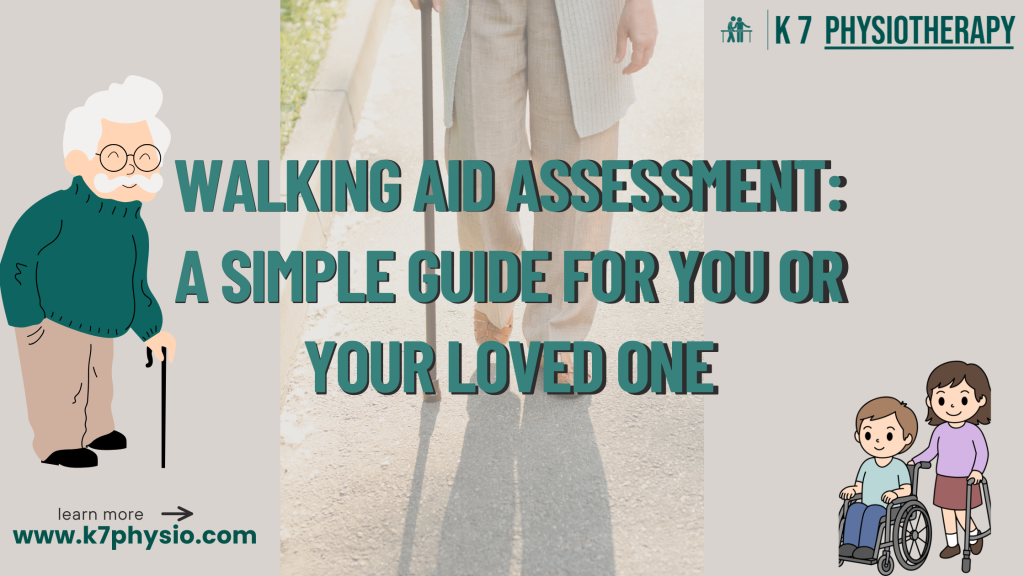The Role of Physiotherapy in Post-Surgical Recovery

Post-surgical recovery is perhaps the most critical healing phase that makes sure that the body is functioning optimally again. The right physiotherapy can influence your recovery after surgery, whether to a musculoskeletal injury or a neurological condition. At K 7 Physiotherapy, we also see post-surgical recovery as more than just healing of the body; it is about gaining back strength, mobility, and a good quality of life.
Understanding Post-Surgical Recovery
Post-surgical recovery describes the time frame in which the body starts to cure itself, mostly after surgery, while attempting to regain its previously lost functions. It could be a combination of relative rest, actual rehabilitation, and medical care. The necessity of surgery could be for resolving injury or condition, but without proper care, the long and sometimes painful recovery occurs. Here is where physiotherapy comes in.
Physiotherapy helps decrease pain, restore mobility, strengthen muscles, and reduce the possibilities of complications during the healing process. An ultimate mannered post-surgical physiotherapy program ensures the recovery pace and readies the person to carry on with his daily life as quickly as possible with advantageous connotations.
The Role of Physiotherapy in Post-Surgical Recovery
Physiotherapy can well be the second part of post-surgical rehabilitation. However, its benefits are not limited to rehabilitation only.
- Pain Management: Pain is one of the prime concerns following surgery. Physiotherapists use different techniques, e.g., manual therapy, heat-and-cold application, and therapeutic exercises, for being slightly comfortable and managing the patient’s discomfort without dependence on medication.
- Restoring Mobility: Mobility restoration is required after surgery. The patients will be assisted by the physiotherapist as they carry out movements and perform exercises to improve flexibility of joints and muscle functions, which are vital to restoring normal movement patterns.
- Strengthening Muscles: Muscles lose strength due to immobilisation and disuse, which usually follows surgical operations. Physiotherapy is focused on gradual strength building and endurance improvement so that the patients gain functional strength for regular daily tasks.
- Preventing Complications: Blood clots and muscle atrophy are examples of complications due to immobility. Individualised exercise plans are prepared by physiotherapists to ensure circulation, good posture and prevent any other complications during recovery.
- Improved Quality of Life: Eventually, the major target of physiotherapy will be uplifting the overall quality of life of that patient. Physiotherapy makes sure to return the patients to their lifestyle without limits by promoting independence along with the decreased level of pain and increased mobility.
Personalised Post-Surgical Physiotherapy at K 7 Physiotherapy
At K 7 Physiotherapy, we believe every recovery journey is unique. Our experienced physiotherapist will carefully assess your condition and design a personalised rehabilitation plan tailored to your specific needs. Whether you are recovering from orthopedic surgery, a stroke, or managing a neurological condition, we are here to help you rebuild strength, restore mobility, and regain independence.
We offer flexible treatment options — at our clinic or through convenient home visits — ensuring that quality physiotherapy is accessible when and where you need it most. Home-based care is ideal for those who may find it difficult to attend a clinic but still deserve expert treatment.
Early intervention is key. Starting physiotherapy soon after surgery can accelerate healing, reduce the risk of complications, and support a faster return to daily life.
FAQs:
1.How soon after surgery should physiotherapy be started?
It depends on what the surgeon says in regards to the same. However, in general, physiotherapy is said to start within a patient whose wound is quite healed and medically stable. Most of the time, the earlier, the better for speedy recovery.
2. Will physiotherapy help with post-surgical pains?
Yes, post-surgical pain is much relieved with manual therapy and movement.
3. How long does physiotherapy continue after surgery?
Physiotherapy, based on the surgery and patient, varies as recovery is fast for some and slow for others, leaving therapy for weeks to a few months in duration.
4. Does physiotherapy hasten recovery after surgery?
To a great extent, physiotherapy hastens recovery. Good mobility, strength, and function allow for faster return to daily activities.


